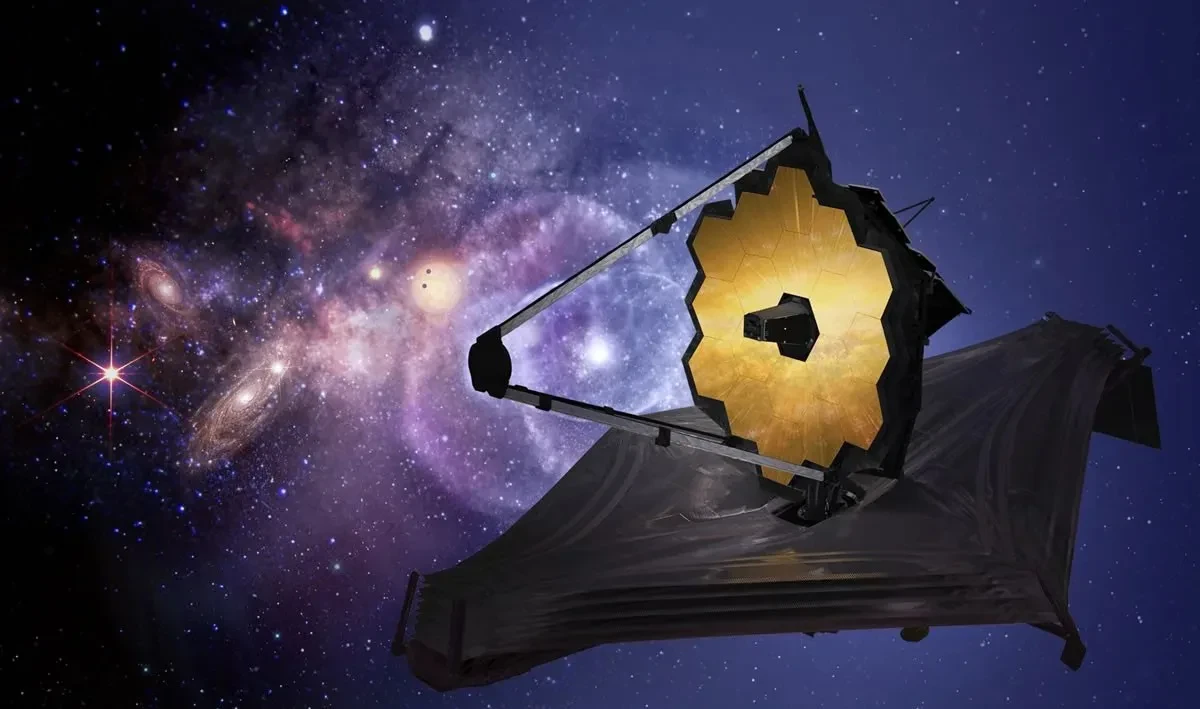NASA’s James Webb Telescope may have detected signs of life on distant planet
 An image of the James Webb Space Telescope. (Photo via NASA)
An image of the James Webb Space Telescope. (Photo via NASA)
The James Webb Space Telescope (JWST) may have detected signs of life on a planet trillions of miles away from Earth, according to a research team at Cambridge University.
The findings, based on the telescope’s analysis of the planet K2-18b, were published in The Astrophysical Journal Letters this week and have sparked worldwide excitement among astronomers.
Molecules linked to life on Earth found in alien atmosphere
Professor Nikku Madhusudhan of Cambridge University’s Institute of Astronomy revealed that his team has identified molecules in the atmosphere of K2-18b that living organisms have only produced, such as marine phytoplankton and bacteria.
“This is the strongest evidence yet that there is possibly life out there,” Madhusudhan told BBC News. “I can realistically say that we can confirm this signal within one to two years.”
The chemicals detected could indicate the presence of life, though scientists are urging caution as further data is required to make a definitive conclusion.
Planet twice the size of Earth, 700 trillion miles away
K2-18b, which is roughly two and a half times the size of Earth, orbits a small red dwarf star about 700 trillion miles from our planet.
Despite this extraordinary distance, JWST’s cutting-edge instruments have been able to observe the planet’s atmospheric composition by analyzing starlight as it passes through the gases surrounding the exoplanet.
Madhusudhan explained that the detected gas—believed to be dimethyl sulfide (DMS)—exists in quantities thousands of times higher than those found on Earth. “So if the association with life is real, then this planet will be teeming with life,” he said.
Discovery still far from confirmed
The research team admits there is still a long way to go. Scientists must be 99.99999% sure of their findings to officially confirm the discovery of extraterrestrial life.
Current results are only at 99.7% confidence, significantly higher than previous findings of 68%, but still not enough to make a claim.
Even if that statistical threshold is reached, experts warn it won’t necessarily mean life has been confirmed. Professor Catherine Heymans, Astronomer Royal for Scotland and a physicist at the University of Edinburgh who is not involved in the study, said:
“Even with perfect data, we can’t say for sure that this is of a biological origin in an alien world because loads of strange things happen in the universe.”
Could this be the turning point in humanity’s search for life?
The discovery could mark a new chapter in humanity’s search for life beyond Earth. The Cambridge team believes they are inching closer to answering one of the biggest questions in science.
“Decades from now, we may look back at this point in time and recognize it was when the living universe came within reach,” said Madhusudhan. “This could be the tipping point, where suddenly the fundamental question of whether we’re alone in the universe is one we’re capable of answering.”



